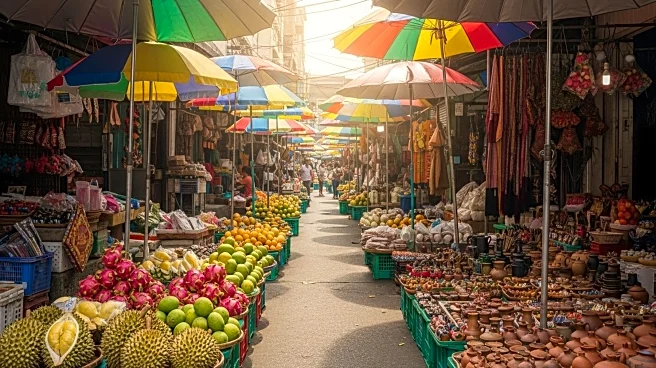Bangkok, the capital of Thailand, has a substantial footprint in Southeast Asia, both economically and socially. As a major urban center, Bangkok's influence extends beyond its borders, affecting regional trade, tourism, and cultural exchange. The city's strategic location and vibrant culture contribute to its significant impact.
Geographic Reach
Bangkok's geographic reach is extensive, with the city occupying 1,568.7 square kilometers in the Chao Phraya River delta. Its strategic location has facilitated trade and commerce, making it a key player in regional economics.
Institutional Presence
Bangkok is home to numerous institutions, including government offices, academic centers, and cultural organizations. These institutions contribute to the city's role as a political and economic hub in Southeast Asia.
Economic and Social Footprint
The city's economic footprint is significant, driven by tourism, trade, and manufacturing. Bangkok's social impact is evident in its cultural festivals and events, which promote cultural exchange and understanding.
Environmental or Community Impact
Bangkok's rapid growth has led to environmental challenges, including resource management and urban development. The city's community impact is reflected in its efforts to address these challenges through sustainable development initiatives.

 Discover Daily
Discover Daily 






